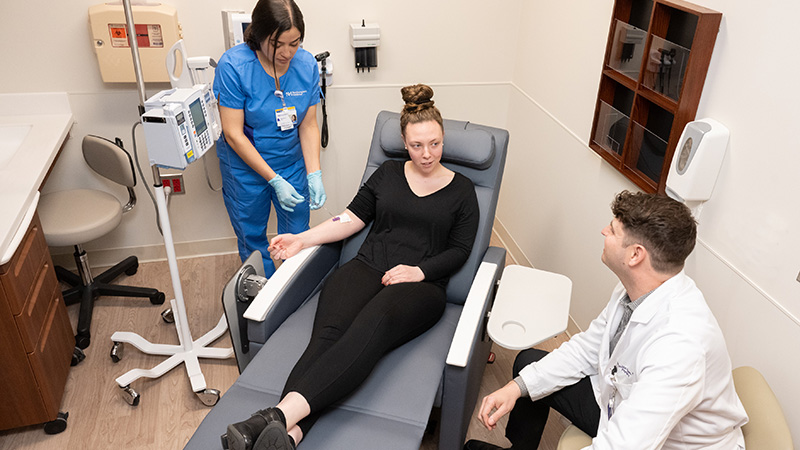Self-Injury: How to Get Help for Yourself or Others
What You Should Know From a Clinical Psychologist
Updated January 2024
Warning: This article contains mentions of self-injury.
To cope with feelings of distress, some people use self-injury, such as cutting. Also called self-harm, self-injury is dangerous and often a sign that a person has a mental health disorder, such as depression or anxiety.
For some people, the pain from self-injury can release beta-endorphins. These hormones may bring a brief sense of release from intense feelings of distress. This can reinforce the urge to self-injure, making it more likely that they will self-injure again.
Effective treatment for self-injury is available.— Jason J. Washburn, PhD
Jason J. Washburn, PhD, a Northwestern Medicine clinical psychologist who is board-certified in clinical child and adolescent psychology, shares what you should know about self-injury and how to get help if you or someone you know is self-injuring or considering it.
Recognize Warning Signs
Most people who self-injure are teens and young adults, but people of all ages may engage in this behavior. "About 18% of teens and young adults will try self-injury at least once in their life, and about half will repeatedly engage in self-injury," says Washburn. "Teens and young adults often use self-injury to regulate distressing or intense emotional experiences, to express their self-loathing and punish themselves, and to decrease suicidal thoughts and urges."
Some signs to watch out for include:
- Repeated fresh cuts, scratches, bruises or other wounds
- Scars, especially a cluster of scars that look similar in shape, direction and location
- Wearing long sleeves or long pants, even in hot weather
- Intense and unstable relationships
- Unstable, unpredictable and impulsive behaviors and emotions
- Statements of self-hatred, hopelessness or worthlessness
Although most self-injuries require only minimal wound care, they can get infected or cause nerve damage. Some can also be serious enough to be life-threatening. Over time, self-injury can also increase the risk that someone will attempt suicide, especially in teens or young adults who are already having thoughts of suicide. If you or someone you know engages in self-injury, it is important to get help.
Tips on How to Respond
If you learn that someone you know is self-injuring, Washburn recommends the following:
- Stay calm. Although self-injury should always be taken seriously, it is important not to overreact and to instead seek to understand the other person’s distress and struggles.
- Validate their emotional state. Always reassure them that their feelings make sense.
- Ask open-ended, nonjudgmental questions. Try to understand their thoughts and emotions before, during and after the self-injury, as well as what situations or events may have triggered the urge to self-injure. Try to understand how self-injury helps them cope with strong emotions or difficult situations. Avoid making judgmental comments or expressing negative emotions about self-injuring.
- Acknowledge that they are not in trouble. Self-injury is an unhealthy behavior, not something that should be punished or stopped immediately. Given that self-injury may be used to cope with suicidal thoughts and behavior, it is important to not insist that it stop, but to instead acknowledge that they are using unhealthy coping strategies and need to learn healthier ones.
Get Help
If you are self-injuring, talk to someone you trust, such as a loved one, a clinician or a spiritual leader. Tell them that you have been hurting yourself. Then, see a physician or mental health specialist for a mental health assessment, diagnosis and treatment plan.
Seeking care for mental health is just as important as getting care for physical health needs. Treatment may include therapy or medications to address an underlying mental health disorder.
"Effective treatment for self-injury is available,” says Washburn, who adds that a comprehensive mental health assessment can help identify which therapies and treatment programs best address your needs. "Self-injury is a sign that you or a loved one is hurting, and regardless of the treatment that you pursue, the end goal is the same: To increase positive experiences and joy, and to cope with challenges using effective and healthy responses."
If you or someone you know is having a mental health crisis, call or text 988 to reach the Suicide & Crisis Lifeline. Trained counselors are available 24/7. There is no cost for lifeline support.






